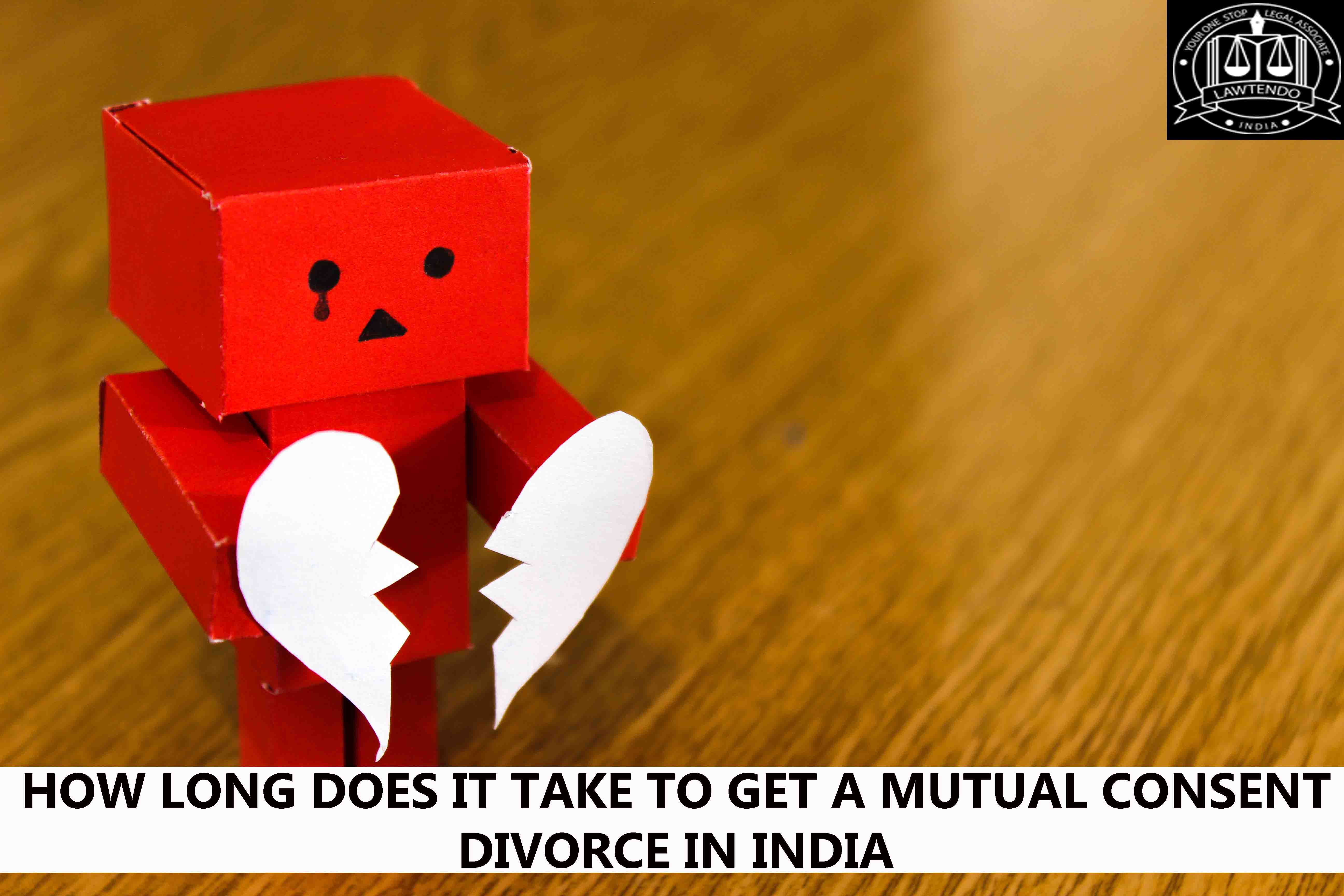How long does it take to get a mutual consent divorce in India

Date : 28 Aug, 2018
Post By Barbie Duggal
Marriage is often considered to be a necessity in order to establish that one has a complete and a healthy social life. Especially in Indian societies, a marriage is supposed permanent and unbreakable till death. Although significantly less than other countries, the number of divorces in India has seen a sharp rise in the past few years. Most of these divorces are between couples living in metro cities. There are a number of reasons due to which there is such an increase in a number of couples that are separating. One reason is increased financial and psychological independence in women leading them to no longer tolerating and breaking free of restrictive and unsatisfactory relationships. Also, the average age of marriage has increased. Couples who get into wedlock at later stages in their lives are already accustomed to a particular way of living and find it difficult and unacceptable to change for their partners. Instead, they choose to part ways. Moreover, the culture of joint families is on the decline due to which there is no support during times of crisis. Despite being looked down upon, the decision to end a marriage is no longer considered a big deal and couples in metro cities are filing for it, if necessary. Like all legal affairs, this too is a long and tedious process. But getting a mutually consented divorce is the cheapest, quickest, and the most hassle-free way of getting a divorce in India.
In order to get a divorce by mutual consent, both the husband and the wife must first come to terms on certain things. They need to decide the division of property, the amount of alimony and the frequency of it (in case alimony is decided to be paid to one partner by the other), and child custody (whether the child custody would be given to one parent or managed between the two) beforehand. With the help of a divorce lawyer, a joint petition is filed by the couple in the court. The court records statements of both the parties and depending on the case, a cooling off period of six months is allocated to the couple to reconsider their decision by solving the differences. In case the cooling off period is not allocated, the divorce proceedings finish off within a month and the divorce is granted by the end of one month. In rest of the cases, the culmination of the case might take somewhere from six months to eighteen months.





